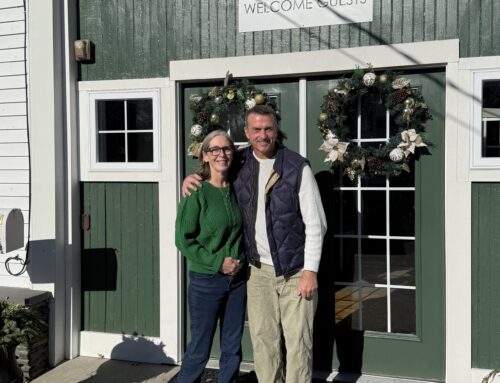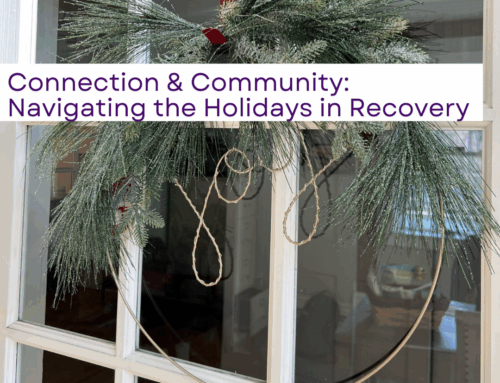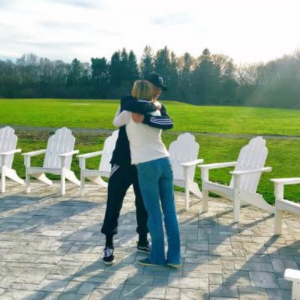
As Thanksgiving approaches, people talk more about gratitude. Expressing gratitude each November is part of tradition, but for people in recovery, gratitude is a year-round practice and an important tool. By practicing gratitude daily, people in recovery remind themselves of all the blessings they have and foster positive thinking, happiness, and wellness.
About Gratitude
At its essence, gratitude is feeling joy for the things you have in life. This isn’t limited to material possessions, although of course you can be grateful for the things in your life, too. Gratitude encompasses everything in life, including people, states of being, feelings, opportunities, and emotions.
Actively practicing gratitude fosters a mindset of positive thinking, and this can greatly improve mental and physical health. Being grateful helps us focus on the good and gives us energy and confidence. This, in turn, leads to a healthier recovery – creating a beautiful cycle.
Gratitude is also the antidote to negative thinking that reduces hope and happiness. People who dwell on the negative aspects in their lives almost always find it difficult to reach a state of contentment. In recovery, excessive negative emotions put people at risk for relapse. This is not to say negative emotions should be overlooked or ignored, but obsessive or continuous negative thinking is hazardous to a healthy recovery.
Gratitude, when practiced daily, enhances hope, increases physical and mental wellbeing, and helps overcome the more difficult times we all face.
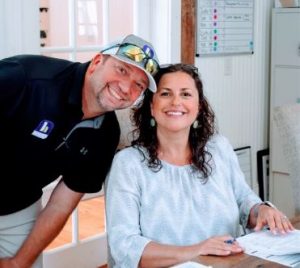 Why Gratitude is Essential in Recovery
Why Gratitude is Essential in Recovery
Especially in early recovery, there are a lot of emotions that surface that are no longer being numbed by drugs or alcohol, and these emotions can sometimes feel overwhelming.
Active addiction can carry with it a lot of shame, guilt, and remorse, and it’s critical to counterbalance these feelings with gratitude, hope, and wellness. Instead of getting lost in negative emotions, use gratitude to be thankful you are in recovery and are fully present in your life. Gratitude helps reduce or even eliminate emotional and physical triggers as well.
Further, practicing gratitude helps you look outward, to all the wonderful things that surround you, rather than keeping you focused inward, which can lead to feelings of negativity and despair.
Ways to Nurture Gratitude
Thankfully, nurturing a daily gratitude practice is simple, and it can be woven into your day-to-day life. It starts with a mindset shift, and a concerted effort to think more positively.
This may not feel easy in early recovery when the problems associated with active addiction are fresh, and we are still sorting out the wreckage, but here is where gratitude comes in. By way of example, instead of thinking of all the people and/or opportunities lost as a result of active addiction, consciously shift your mindset to one of gratitude that you are living in recovery and have the chance to rebuild and repair your life.
 Take a Moment: A gratitude practice can start with small things, like appreciating a beautiful, sunny day, fresh air, a nice meal, or conversation with a good friend. Take moments out of your day to pause and actively think of the things that you are grateful for, and this mindset will begin to come more naturally.
Take a Moment: A gratitude practice can start with small things, like appreciating a beautiful, sunny day, fresh air, a nice meal, or conversation with a good friend. Take moments out of your day to pause and actively think of the things that you are grateful for, and this mindset will begin to come more naturally.- Make a Gratitude List: Another useful tool to build a gratitude practice is to start a daily gratitude list. Pick a time of day that works – maybe first thing or before bed at night – and write down at least five things you are grateful for. These may be smaller things at first, if the bigger things in your life are too much, like a warm blanket, a good dessert, or snuggles from a dog. As time passes, you can look back on these lists and see how they evolve, especially as the gifts of recovery start coming back into your life.
- Do Things for Others: Doing things for others helps you get out of your own head and cultivates gratitude that you can give back. Volunteer for a cause you care about or spend time with someone less fortunate than you to get some perspective. Spend time with animals and children, who are naturally more grateful and can help you live in the present moment.
- Build Community: Become part of a community focused on wellness, like a fitness, spiritual, or recovery group. Fostering connections with people helps build gratitude for you and gives you people to talk to when things are tougher.
- Meditation: Start a meditation practice that cultivates loving-kindness. Meditating on the positive aspects of life and sending goodwill towards others is a great tool for enhancing gratitude.
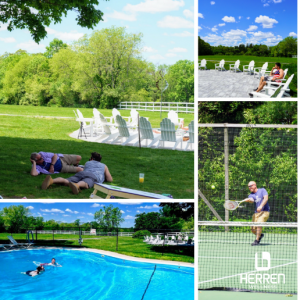 About Herren Wellness
About Herren Wellness
We stand side-by-side with our guests as they do the hard work of looking at unhealthy patterns and behaviors and help them build the tools and skills they need for a sustainable and healthy recovery.
We work with guests to rediscover their purpose, passions, and strengths. We build self-care and mindfulness skills to help guests become aware, live fully present in their lives, and treat themselves with loving-kindness. We also provide the tools needed to establish healthy habits and patterns like fitness, healthy sleep hygiene, and proper nutrition. We help guests uncover and experience the things that bring joy, meaning, and purpose to their lives.
If you, or a loved one, are looking for help, please call us at (844) 443-7736, email us at info@herrenwellness.com, or fill out a contact form. You are not alone.




